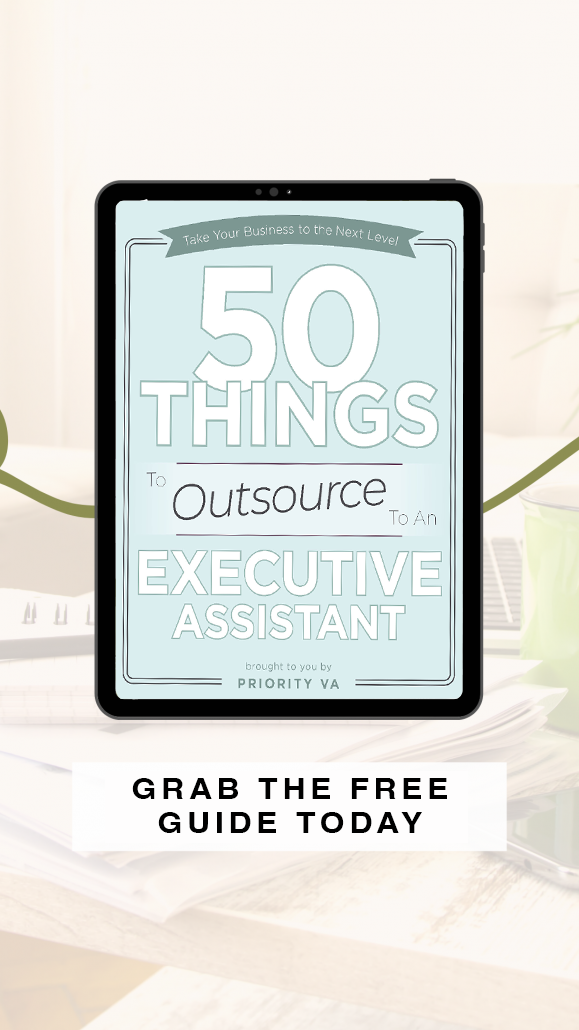If you never woke up tomorrow, would your business survive without you?
It’s a horrible question. Actually, no. It’s a horrible answer to think about. The question itself, however, is a smart one to be asking.
If your business isn’t running like a well-oiled machine, and every decision, implementation, or idea hinges on your involvement and say, it’s time to buckle down and do some reevaluating.
If you want your business to be your legacy, perhaps even make sure it provides for the ones you love long after you’re gone, there are some essentials you need to take care of today. Here’s a little push to get you headed down the right track while planning for the future of your business – realizing it may be a future that doesn’t include you.

1. Document, Document, Document
Everything you do, every way you do it, and every reason it needs to get done needs to be documented. Your business didn’t come with a manual, but you need to be writing one people can reference! Even if you’re taking time for vacation, you need to have documentation in place so team members can confidently make decisions based on the processes and procedures you’ve got in writing.
My husband is the one who takes care of our computer glitches or vehicle maintenance. When he’s traveling, though, I’m glad I have an owner’s manual at the ready in case I need to look up how to do something, or why something is happening the way it is.
Documenting is also a great way for you to evaluate what you’re doing and why. Perhaps as you’re documenting it all, you’ll discover a far more efficient process, or program, to help you get the job done. Discoveries are always waiting to be made, and it’s better to find them ahead of a crisis than because of one…
2. Define Roles
If you have one team member, or one hundred, everyone needs to be clear on their role in your business. Who’s second in command? Who do you trust with the details when you’re heading out of town? Is there anyone who is responsible for supervising others?
Your team members need to know what their role is, and what’s expected of them – for more than the “in case” scenario of you not showing up to work again. They need to know what’s expected of them in order for them to perform at their best in their work, and to lead and encourage others to do their best in their assignments or roles.
You may not have a company org chart, but you certainly should have parenthetical titles understood by those who need them. Martha is your director of marketing and second in command. Ethel is your social media manager, and can also oversee project management should Martha need to take the reigns of the company. (Also, how old are Martha and Ethel?! They sound like they’ve been with you for a while.)
It’s one thing to write down who’s in charge of what, but take that information to the next level and make sure your team members understand their specific roles and responsibilities in every situation.
3. Manage Passwords
You’ve probably got a system down somewhere of what passwords are for which programs. But if you’re not there to direct anyone, will they be able to get into the necessary functions and programs you need to run to do business every day? Will someone be able to log in to your email to answer those important messages in your absence?
First, you’ll want to make sure you have a password management program in place. (LastPass and Dashlane are what we hear about most often.) It can track all of your secure passwords and even credit card information for you, and keep your information safer than scribbling on loose leaf paper now and then.
Whatever password management system you choose, you’ll need to make sure if and when it’s needed, that information can be accessed by key people on your team. Most password management programs allow you to share login information (either limited, or with full rights) to your team members. Remember it’s shared through a secure program, so it’s not like painting it on the side of your car and driving around town with it. It’s safer than it may feel like to you.
4. Estate Planning
No one wants to imagine their death, but life will be going on in some form after you’re gone, and you need to make sure those important to you are taken care of. If you haven’t included your business in your estate planning, now is the time to do that. Make sure it has all the necessary legal speak – who will be in charge of what, where the important information is, and what assets the business has in its possession. Your attorney will help you draft the appropriate estate planning documents, but don’t stop at leaving your fine china to your niece. Take careful planning in distributing the assets and responsibilities of your business to the entities or individuals that will continue your legacy when you’re no longer able to.
Make sure it has all the necessary legal speak – who will be in charge of what, where the important information is, and what assets the business has in its possession. Your attorney will help you draft the appropriate estate planning documents, but don’t stop at leaving your fine china to your niece. Take careful planning in distributing the assets and responsibilities of your business to the entities or individuals that will continue your legacy when you’re no longer able to.
A will usually ends up going through probate, but something like a trust is indisputable after death. Weigh your options, and spend time taking care of this on the front end, so people aren’t having to sort through a disastrous mess in the wake of their grief for losing you.
It isn’t pretty, but it’s super important. Make sure you’re running your business now in such a way that it can keep running once you’ve crossed the finish line of life.





